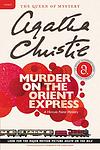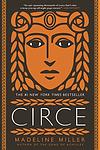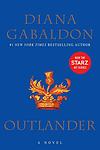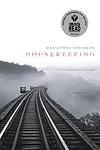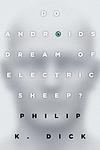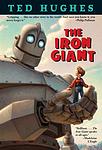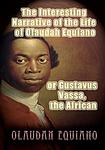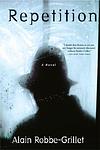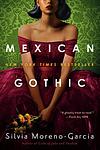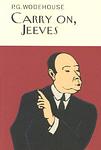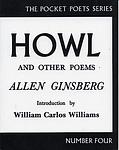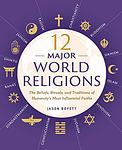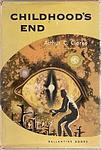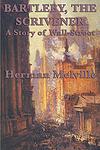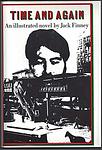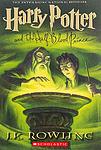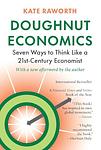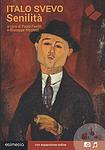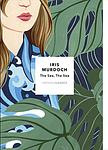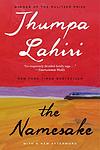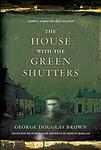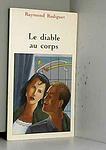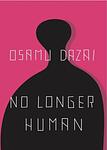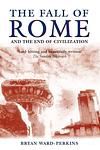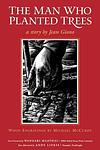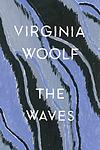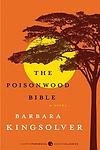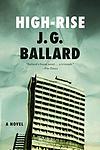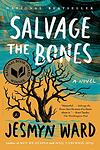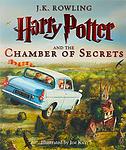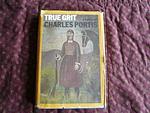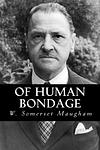Our Users' Favorite Books of All Time
This is one of the 305 lists we use to generate our main The Greatest Books list.
-
I, Rigoberta Menchú: An Indian Woman in Guatemala by Rigoberta Menchú Tum
This book is an autobiographical account of a woman who grew up in a small village in Guatemala during a time of extreme political turmoil. Despite facing poverty, racism, and violence, she becomes a prominent activist for indigenous rights. Her story provides a firsthand account of the hardships and injustices faced by the indigenous people in Guatemala, and her tireless fight for their rights eventually leads her to win the Nobel Peace Prize.
The 1185th Greatest Book of All Time -
Murder on the Orient Express by Agatha Christie
A renowned Belgian detective finds himself embroiled in a complex murder case aboard the luxurious Orient Express train. The victim is a wealthy American businessman with numerous enemies, and the train's diverse passenger list includes individuals of varying nationalities and backgrounds, each with their own secrets. As the train is halted due to a snowdrift, the detective must race against time to solve the murder before the train reaches its destination and the murderer has a chance to escape.
The 399th Greatest Book of All Time -
A Heartbreaking Work of Staggering Genius by Dave Eggers
A Heartbreaking Work of Staggering Genius is a memoir that follows the life of a young man who, after the cancer-related deaths of his parents, is tasked with raising his 8-year-old brother. The book explores themes of death, family, and the responsibilities that come with sudden adulthood. It is a testament to the strength of the human spirit, showcasing the protagonist's journey through grief, financial struggles, and the challenge of raising a child, all while trying to navigate his own young adulthood.
The 755th Greatest Book of All Time -
Circe by Madeline Miller
The novel is a reimagining of the life of Circe, a minor goddess and witch from Homer's Odyssey. Born into the house of Helios, god of the sun, Circe is scorned by her family and turns to mortals for companionship, leading her to discover her powers of witchcraft. After transforming her mortal lover into a sea monster, she is banished to a deserted island by Zeus. Over the centuries, she hones her magical abilities, encounters famous mythological beings, and struggles with her immortality, loneliness, and desire for love and freedom.
The 4021st Greatest Book of All Time -
Ethan Frome by Edith Wharton
Set in a bleak New England landscape, the book tells the story of Ethan Frome, a poor, hardworking farmer who is married to a sickly, bitter woman named Zeena. When Zeena's young cousin Mattie comes to live with them, Ethan becomes infatuated with her, leading to a tragic love triangle. The narrative explores themes of passion, duty, and the oppressive nature of rural poverty.
The 366th Greatest Book of All Time -
Wide Sargasso Sea by Jean Rhys
This novel is a postcolonial prequel to "Jane Eyre," exploring the life of Mr. Rochester's mad wife, Bertha. Set in Jamaica during the 1830s, it follows the story of Antoinette Cosway, a white Creole heiress, from her youth in the Caribbean to her unhappy marriage and move to England. Caught in a society that both rejects and exoticizes her, Antoinette is ultimately driven into madness by her oppressive husband and the haunting legacy of colonialism.
The 113th Greatest Book of All Time -
Moral Sense by James Q. Wilson
This book explores the concept of morality from a sociobiological perspective, arguing that humans are inherently equipped with a sense of right and wrong. The author delves into how moral judgments are formed, influenced by both genetic predispositions and cultural factors. By examining various aspects of human behavior, such as altruism, empathy, and the capacity for guilt, the work presents a compelling case for the existence of a universal moral instinct. Through a blend of philosophical inquiry and empirical evidence, the book challenges readers to consider the origins of their moral beliefs and the role that both nature and nurture play in shaping our ethical landscapes.
The 6229th Greatest Book of All Time -
The Giver by Lois Lowry
The book is set in a seemingly perfect community without war, pain, suffering, differences or choice, where everything is under control. The protagonist is chosen to learn from an elderly man about the true pain and pleasure of the "real" world. He discovers the dark secrets behind his fragile community and struggles to handle the burden of the knowledge of pain and the concept of individuality. He must decide whether to accept the status quo or break free, risking everything.
The 601st Greatest Book of All Time -
Outlander by Diana Gabaldon
The novel follows a World War II nurse who accidentally time travels back to 18th century Scotland. There, she meets a handsome and brave Scottish warrior and is torn between her loyalty to her husband in her own time and her growing love for the warrior. As she becomes more entwined in the past, she must navigate the dangers of a time not her own, including political unrest and violence, while trying to find a way back home.
The 902nd Greatest Book of All Time -
Martín Fierro by José Hernández
"Martín Fierro" is an epic poem that tells the story of a gaucho, or Argentine cowboy, who is forcibly recruited to fight against indigenous tribes. He returns to find his home destroyed and his family gone, leading him to become an outlaw. The narrative explores themes of Argentine identity, the conflict between civilization and nature, and the injustices suffered by the gauchos. It is recognized as a foundational work of Argentine literature.
The 1619th Greatest Book of All Time -
Howl's Moving Castle by Diana Wynne Jones
In a magical land where witches and wizards exist, a young hat maker named Sophie is cursed by a jealous witch and transformed into an old woman. Determined to break the curse, Sophie seeks refuge in the mysterious moving castle of the feared wizard Howl. As Sophie navigates the castle's enchanting rooms and encounters its eccentric inhabitants, she discovers the power of love, friendship, and self-acceptance. Together with Howl and his apprentice Michael, Sophie embarks on a captivating journey filled with adventure, magic, and unexpected twists that will change their lives forever.
The 1100th Greatest Book of All Time -
What Does It All Mean? by Thomas Nagel
This book serves as an accessible introduction to philosophy, aimed at those with little to no background in the subject. It presents a series of fundamental philosophical questions—ranging from the existence of knowledge, the nature of the mind and consciousness, to the implications of free will and the essence of morality. Through engaging and straightforward prose, the author invites readers to ponder these deep questions, encouraging them to think critically about the world around them and their place within it. Rather than providing definitive answers, the book opens up a space for inquiry and reflection, making the case that wrestling with these questions is a crucial part of the human experience.
The 5650th Greatest Book of All Time -
The Autumn of the Patriarch by Gabriel García Márquez
The novel explores the life of an eternal dictator who has ruled over a Caribbean nation for several decades. The patriarch's oppressive regime is marked by corruption, violence, and absurdity, while his personal life is characterized by loneliness and paranoia. The narrative is a complex, non-linear exploration of power, time, and the dehumanizing effects of political tyranny. The patriarch's death prompts a reflection on his life and reign, revealing a mythical, magical, and horrifying reality.
The 1648th Greatest Book of All Time -
Guns, Germs, and Steel by Jared Diamond
The book is a comprehensive exploration of the different trajectories of human societies throughout history. It argues that environmental factors, rather than racial or cultural differences, are the primary reason why some societies developed more advanced technology and political systems. The author uses a multidisciplinary approach, drawing from fields such as geography, evolutionary biology, and linguistics, to support his thesis. The book covers a wide range of topics, including the domestication of plants and animals, the invention of writing, and the spread of diseases.
The 1140th Greatest Book of All Time -
Cousin Bette by Honoré de Balzac
"Cousin Bette" is a novel set in mid-19th century Paris, focusing on the lives of the Hulot family and their cousin, Bette, an old maid who harbors a deep resentment towards her relatives due to their wealth and social status. When Bette learns that her cousin's husband is having an affair, she decides to exact revenge by manipulating various characters and situations, leading to the downfall of the Hulot family. The novel explores themes of jealousy, revenge, and the destructive power of repressed feelings.
The 492nd Greatest Book of All Time -
The Second World War by Winston Churchill
This book provides a comprehensive overview of the Second World War from the perspective of one of its most influential leaders. It covers the entire span of the war, from its origins in the political and economic turmoil of the 1930s, to the major battles and strategic decisions that shaped its course, to its aftermath and impact on the world. The author's unique perspective and firsthand experience, combined with his eloquent and insightful writing, make this a definitive account of one of the most important events in modern history.
The 553rd Greatest Book of All Time -
The Demon Haunted World by Carl Sagan
The book champions the importance of scientific thinking and skepticism in a world increasingly dominated by pseudosciences, superstitions, and unverified beliefs. It argues that science is not only a tool for understanding the universe but also a critical framework for safeguarding democracy and human progress. Through a series of essays and reflections, the author explores various topics including UFOs, witch hunts, and the difference between science and pseudoscience, emphasizing the need for evidence-based reasoning and the scientific method in everyday decision-making. The work serves as a plea for the adoption of scientific literacy and critical thinking as essential tools for individual empowerment and societal health.
The 6382nd Greatest Book of All Time -
Housekeeping by Marilynne Robinson
The novel explores the life of two sisters, Ruth and Lucille, who are raised by a series of relatives in a small, secluded town in Idaho after their mother's suicide. The girls' lives are profoundly affected by the eccentric and transient lifestyle of their aunt Sylvie, who becomes their guardian. The narrative delves deeply into themes of family, identity, womanhood, and the impermanence of life, ultimately leading to a divide between the sisters as they choose different paths in life.
The 215th Greatest Book of All Time -
Brother, I'm Dying by Edwidge Danticat
"Brother, I'm Dying" is a memoir that explores the author's life growing up in Haiti, her immigration to the United States, and the lives of her father and uncle. The story delves into her father's struggle with illness in America, her uncle's experience as a pastor in Haiti during political turmoil, and his subsequent death in U.S. immigration custody. The book serves as a poignant exploration of family, immigration, love, and loss.
The 3790th Greatest Book of All Time -
And Then There Were None by Agatha Christie
In this classic mystery novel, ten strangers are invited to a secluded mansion on a private island by a mysterious host who is nowhere to be found. As the guests begin to die one by one, mirroring a creepy nursery rhyme that hangs in each of their rooms, they realize that the killer is among them. As suspicion and fear escalate, they must uncover the murderer before no one remains.
The 195th Greatest Book of All Time -
The Last of the Mohicans by James Fenimore Cooper
Set during the French and Indian War, this historical novel follows the journey of Hawkeye, a skilled frontiersman, and his two Mohican companions as they guide two daughters of a British colonel through the dangerous wilderness of the American frontier. The group faces numerous perils and conflicts, not only from the war-torn landscape and hostile tribes, but also from a treacherous Huron scout. The novel explores themes of racial conflict, survival, and the fading of indigenous cultures.
The 352nd Greatest Book of All Time -
Do Androids Dream of Electric Sheep? by Philip K. Dick
Set in a post-apocalyptic world, the novel presents a future where Earth's life has been greatly damaged by a nuclear global war, leaving most species extinct. The remaining human population has been encouraged to emigrate to off-world colonies to preserve the human race. Those who remain on Earth are tasked with maintaining the ecological balance by owning and caring for animals, replacing extinct species with mechanical replicas when necessary. The story revolves around a bounty hunter, who is tasked with "retiring" rogue androids that pose a threat to humans, and his emotional and moral struggles as he goes about his work.
The 292nd Greatest Book of All Time -
The Iron Giant by Ted Hughes
The book tells the story of a mysterious metal-eating robot, the Iron Giant, who emerges from nowhere and befriends a young boy. As the giant becomes a local pariah for consuming the community's metal, the boy helps him find a peaceful existence. However, when an even greater threat descends upon Earth, the Iron Giant proves to be a savior, using his incredible strength and selfless courage to defend the planet, ultimately transforming into a hero and earning the respect and admiration of those who once feared him.
The 4639th Greatest Book of All Time -
Sacred And Secular by Ronald Inglehart, Pippa Norris
This book explores the complex relationship between the process of secularization and the vitality of religion in the contemporary world. Drawing on a wealth of empirical data from the World Values Survey, which spans nearly 100 countries and covers the beliefs and values of the majority of the world's population, the authors argue that societal modernization leads to a decline in traditional religious values but does not necessarily result in the disappearance of religion. Instead, the nature of religiosity changes, adapting to new social contexts. The analysis delves into how economic development, social progress, and political change influence the secularization process, and conversely, how the persistence of strong religious beliefs can shape societal development. This nuanced examination challenges simplistic narratives about faith and secularism, suggesting that the relationship between the sacred and the secular is both complex and evolving.
The 7040th Greatest Book of All Time -
Sapiens: A Brief History of Humankind by Yuval Noah Harari
This book provides a comprehensive exploration of the history of the human species, tracing back from the earliest forms of Homo Sapiens to the modern day. It delves into evolutionary biology, the development of cultures and societies, and the rise of major ideologies and technologies. The book also discusses the future of the species, posing thought-provoking questions about our roles and responsibilities in a rapidly changing world.
The 2290th Greatest Book of All Time -
The Interesting Narrative of the Life of Olaudah Equiano by Olaudah Equiano
This autobiographical book tells the story of an African man who was kidnapped from his homeland as a child and sold into slavery. The narrative follows his life as he is transported across the Atlantic, sold to various masters, and eventually purchases his own freedom. The book provides a detailed account of the horrors of the Middle Passage and the inhumane conditions of slavery, while also serving as a powerful testament to the human spirit's ability to overcome adversity.
The 1263rd Greatest Book of All Time -
The Last Battle: The Chronicles of Narnia by C. S. Lewis
In the final installment of the series, Narnia faces its darkest hour. A false Aslan is commanding everyone to work tirelessly for the cruel Calormenes. Many Narnians are deceived by this false god and his prophet, an ape. However, a small band of loyal Narnians, led by King Tirian, fights back against the invaders. The friends of Narnia, children from another world, are summoned once again to help in this last battle. The fate of Narnia hangs in the balance and the final battle between good and evil determines the future of the magical land.
The 1083rd Greatest Book of All Time -
Macunaíma by Mario de Andrade
This book is a hallmark of Brazilian literature, blending folklore, social critique, and surrealism to narrate the adventures of its eponymous hero, a shapeshifting character of indigenous origin who embarks on a journey from the Amazon rainforest to the city of São Paulo. Throughout his quest to retrieve a magical amulet stolen by a fearsome giant, the protagonist encounters a myriad of mythical creatures, gods, and figures from Brazilian folklore, all while satirizing the cultural and social issues of early 20th-century Brazil. The narrative is celebrated for its inventive language, playful use of Brazilian vernacular, and its pivotal role in the Brazilian Modernist movement, offering a unique exploration of national identity, racial diversity, and the complex relationship between tradition and modernity.
The 1841st Greatest Book of All Time -
The Monk by Matthew Lewis
"The Monk" is a gothic novel that explores the tragic downfall of a virtuous and respected monk who succumbs to temptation and sin. The protagonist is lured into a world of lust, greed, and pride by a woman who is actually Satan in disguise. His moral decay leads to a series of horrific events including murder, incest, and witchcraft. The novel serves as a cautionary tale about the dangers of excessive pride and the destructive power of unchecked desire.
The 724th Greatest Book of All Time -
Speak, Memory by Vladimir Nabokov
"Speak, Memory" is an autobiographical memoir that explores the author's life from his birth in 1899 to his emigration to the United States in 1940. The narrative details his privileged childhood in Russia, his experiences during the Russian Revolution, his time in Europe as an émigré, and his career as a writer and scholar. The book is noted for its intricate descriptions, its exploration of the nature of memory, and its intricate linguistic play.
The 333rd Greatest Book of All Time -
Mexican Gothic by Silvia Moreno-Garcia
In "Mexican Gothic," a young woman named Noemí travels to a remote mansion in the Mexican countryside to rescue her cousin who has seemingly fallen under the spell of her new husband. As Noemí delves deeper into the eerie and unsettling atmosphere of the house, she uncovers dark family secrets and confronts a malevolent force that threatens their lives. Blending elements of gothic horror and Mexican folklore, this atmospheric tale explores themes of colonialism, racism, and female empowerment in a captivating and chilling narrative.
The 6598th Greatest Book of All Time -
Don Segundo Sombra by Ricardo Güiraldes
This classic Argentine novel is a coming-of-age story set in the Pampas, focusing on the life of a young orphan who finds guidance and mentorship under the wing of a seasoned gaucho named Segundo Sombra. Through his experiences in the vast landscapes of rural Argentina, the protagonist learns the values of courage, responsibility, and freedom, embodying the gaucho spirit. The narrative, rich in poetic imagery and symbolism, explores themes of identity, tradition, and the passage into adulthood, offering a deep reflection on the essence of Argentine culture and the timeless bond between man and nature.
The 1133rd Greatest Book of All Time -
The Shadow of the Wind by Carlos Ruiz Zafon
The novel follows the story of a young boy in post-war Barcelona, who discovers a mysterious book in a hidden library that his father takes him to, which houses forgotten books. The boy becomes captivated by the book and its author, but as he grows older, he realizes that someone is destroying all books written by this author. As he delves deeper into the mystery, the boy's life becomes intertwined with the author's, revealing a dark and tragic past that someone wants to be kept hidden. The story is a mix of romance, mystery, and a historical narrative set against the turbulent backdrop of a city recovering from war.
The 1060th Greatest Book of All Time -
Carry On, Jeeves by P. G. Wodehouse
"Carry On, Jeeves" is a humorous collection of short stories that revolve around the antics of a young, wealthy, and somewhat clueless bachelor and his ingenious valet. The valet often assists his employer in navigating through various social dilemmas, romantic entanglements, and personal gaffes, providing solutions that are both clever and entertaining. The book is a comedic exploration of British high society in the early 20th century, filled with witty dialogue and engaging characters.
The 868th Greatest Book of All Time -
War Before Civilization by Lawrence H. Keeley
"War Before Civilization" challenges the common perception that prehistoric societies were peaceful and that war only emerged with the advent of civilization. The book presents a comprehensive analysis of archaeological and ethnographic evidence, demonstrating that prehistoric warfare was frequent, deadly, and unequivocally deliberate. It argues that intertribal conflicts were conducted with strategic planning and that rates of casualties could be as high as those found in modern wars. The book dispels the myth of the noble savage and suggests that the practices of war have deep roots in humanity's past, fundamentally shaping human society long before recorded history.
The 6444th Greatest Book of All Time -
Howl and Other Poems by Allen Ginsberg
"Howl and Other Poems" is a collection of verse that critiques and challenges societal norms and conventions, particularly those of post-World War II America. The title poem, "Howl", is a raw and passionate indictment of capitalist society and its suppression of individuality and human freedom. The collection also explores themes of mental illness, sexuality, spirituality, and the human condition, with a focus on the beatnik and countercultural movements of the time.
The 793rd Greatest Book of All Time -
The Executioner's Song by Norman Mailer
"The Executioner's Song" is a true crime novel that tells the story of Gary Gilmore, a man who, after being released from prison, embarks on a murder spree in Utah that leads to his capture and execution. The book delves into Gilmore's troubled life and psyche, his relationships, and the legal and moral debates surrounding his death sentence. It provides an in-depth look at the American criminal justice system and capital punishment.
The 1097th Greatest Book of All Time -
The Quran by Unknown
This book is a compilation of the religious text of Islam, believed by Muslims to be a revelation from God. It is divided into chapters, which are then divided into verses. The text discusses various aspects of life and provides guidance on morality, ethics, law, and personal conduct. It also includes narratives of several prophets, their lives, and their interactions with their communities. The book is considered the ultimate source of spiritual guidance for Muslims worldwide.
The 444th Greatest Book of All Time -
Charlie And The Chocolate Factory, by Roald Dahl
A young boy named Charlie lives in poverty and dreams of visiting the nearby chocolate factory owned by the eccentric and mysterious Willy Wonka. When Charlie finds one of the five golden tickets hidden in chocolate bars worldwide, he earns the chance to tour the factory. Accompanied by his Grandpa Joe and four other children, Charlie embarks on a magical and surreal adventure inside the factory, where he learns valuable lessons about greed, arrogance, and honesty.
The 494th Greatest Book of All Time -
It by Stephen King
A group of seven childhood friends, known as The Losers Club, come together in their small hometown to confront an evil entity that they first battled as children. This malevolent force, which often takes the form of a terrifying clown, preys on the children of their town by exploiting their deepest fears. The friends must confront their own personal demons and past traumas in order to once again face this entity, and the novel alternates between their childhood and adult experiences with this evil.
The 677th Greatest Book of All Time -
Childhood's End by Arthur C. Clarke
"Childhood's End" is a thought-provoking science fiction novel that explores the evolution of humanity under the guidance of mysterious extraterrestrial beings known as the Overlords. Set in the near future, the book follows the transformation of society as the Overlords bring peace, prosperity, and advanced technology to Earth. However, as the human race reaches a new level of enlightenment, questions arise about the true intentions of the Overlords and the future of humanity itself.
The 1215th Greatest Book of All Time -
The Life of Lazarillo de Tormes by Unknown
"The Life of Lazarillo de Tormes" is a novel that follows the life of Lazarillo, a boy of humble origins from Salamanca, Spain, who becomes an apprentice to a series of masters, each representing different aspects of society. The narrative is a critique of the hypocrisy and corruption of the Spanish society of the time, especially the clergy. Lazarillo's experiences and the lessons he learns, often through deception and trickery, serve as a social and moral commentary on the world around him. The novel is considered one of the pioneers of the picaresque genre.
The 756th Greatest Book of All Time -
A History Of Political Theory by George Holland Sabine
"A History of Political Theory" provides a comprehensive examination of the evolution of political theories, from ancient times through to the modern era. The book delves into the philosophical underpinnings and the contextual influences of political thought, exploring the ideas of prominent theorists such as Plato, Aristotle, Machiavelli, Hobbes, Locke, Rousseau, and Marx, among others. It discusses how these theories responded to the social, economic, and political conditions of their times and how they have shaped the foundational concepts of political governance and civic responsibility. The work is celebrated for its critical analysis and its detailed, scholarly approach to the study of political ideologies and their impacts on the development of political institutions and practices.
The 4640th Greatest Book of All Time -
On Writing by Stephen King
This book is a memoir that serves as a guide for aspiring writers. The author shares his journey as a writer, his struggles, and his successes, while also providing practical advice on the craft of writing. It delves into the mechanics of writing, the importance of reading, the role of an editor, and the perseverance required to be a successful writer. The book also discusses the author's near-fatal accident and how it impacted his writing process, emphasizing the importance of resilience and dedication to the craft.
The 1313th Greatest Book of All Time -
Atomic Habits by James Clear
This book explores the power of small habits and incremental changes in order to achieve significant personal and professional growth. The author delves into the science behind habit formation and provides practical strategies to break bad habits and build good ones. Through insightful anecdotes and actionable advice, "Atomic Habits" offers a roadmap for individuals to transform their lives by harnessing the compounding effect of small habits.
The 6400th Greatest Book of All Time -
The Tale of the Bamboo Cutter by Unknown
"The Tale of the Bamboo Cutter" is a classic piece of Japanese literature that follows the story of a bamboo cutter who finds a tiny girl inside a glowing bamboo stalk. The girl grows into a beautiful and desirable woman, attracting numerous suitors including the emperor. However, she reveals that she is not from Earth, but from the moon and is eventually taken back, leaving the bamboo cutter and her suitors heartbroken. The tale is a poignant exploration of love, loss, and the transient nature of beauty.
The 1620th Greatest Book of All Time -
Confessions of Zeno by Italo Svevo
"Confessions of Zeno" is a satirical, semi-autobiographical novel that follows the life of Zeno Cosini, a neurotic Italian businessman, as he tries to quit smoking. The book is presented as a diary, written at the suggestion of Zeno's psychoanalyst, and it details Zeno's thoughts on his health, his family, his business ventures, and his infatuation with a beautiful woman. Throughout the story, Zeno's attempts to quit smoking serve as a metaphor for his struggles with his personal weaknesses and his quest for self-understanding.
The 256th Greatest Book of All Time -
Bartleby the Scrivener by Herman Melville
"Bartleby the Scrivener" is a story set in Wall Street, revolving around a law firm clerk named Bartleby who, after initially proving himself a diligent employee, begins to refuse his boss's orders with the phrase "I would prefer not to." Despite being fired and even imprisoned, Bartleby continues his passive resistance until his eventual death. The narrative explores themes of isolation, the mechanization of the workplace, and the inexplicable nature of human behavior.
The 595th Greatest Book of All Time -
Winesburg, Ohio by Sherwood Anderson
"Winesburg, Ohio" is a collection of interconnected short stories that paints a picture of life in a small town in the early 20th century. The book captures the hopes, dreams, and despair of the inhabitants of Winesburg, focusing on a young reporter as he interacts with the townspeople. Each character's story reveals their inner struggles, loneliness, and search for understanding and connection, providing a profound exploration of human nature and the complexities of life in a small community.
The 284th Greatest Book of All Time -
Time and Again by Jack Finney
Time and Again is a science fiction novel that follows Simon Morley, a young advertising artist living in New York City, who is recruited by a secret government project to travel back in time to the year 1882. The novel explores themes of nostalgia, love, and the complexity of time travel, as Simon falls in love with a woman from the past and must decide whether to stay in the 19th century or return to his own time.
The 690th Greatest Book of All Time -
Harry Potter and the Half-Blood Prince by J. K Rowling
In the sixth installment of the series, the protagonist returns for his sixth year at a magical school, where he excels in potions class with the help of an old textbook once belonging to the mysterious "Half-Blood Prince". As he delves deeper into his enemy's past through private lessons with the headmaster, he learns more about the Dark wizard's history and his own destiny. Amidst this, the school is no longer the safe haven it once was, and danger lurks within the castle walls. The year ends with a devastating loss, setting the stage for the final showdown.
The 730th Greatest Book of All Time -
An Unfinished History Of The World by Hugh Thomas
"An Unfinished History of the World" offers a comprehensive overview of human civilization, tracing the development of societies from ancient times through the 20th century. The book explores the evolution of political, economic, and social structures across different cultures and continents, highlighting the interconnectedness of global events and the impact of technological and ideological advancements on human progress. Through a detailed narrative, the author provides insights into the forces that have shaped historical epochs and the ongoing challenges that continue to influence the modern world.
The 5009th Greatest Book of All Time -
Oroonoko by Aphra Behn
The novel tells the story of an African prince, Oroonoko, who is tricked into slavery by European traders. Despite his noble bearing and personal courage, he is shipped to a plantation in Surinam where he leads a slave revolt. The book explores themes of colonialism, slavery, and the juxtaposition of civilization and barbarity. The protagonist's tragic end is a powerful indictment of European barbarity and hypocrisy.
The 569th Greatest Book of All Time -
The Social Construction Of What? by Ian Hacking
"The Social Construction of What?" explores the concept of social constructionism, a theory that argues various aspects of our everyday lives, including knowledge, truth, and social realities, are shaped by social processes and interactions. The book critically examines how this theory is applied across different fields such as science, mathematics, technology, and gender, questioning what exactly is being constructed and the implications of labeling something as socially constructed. The author delves into the debates and controversies surrounding social constructionism, offering a nuanced perspective on its uses and limitations, and encourages readers to consider how social factors influence our understanding of the world.
The 6627th Greatest Book of All Time -
Doughnut Economics by Kate Raworth
The book presents a transformative economic model that proposes a radical rethinking of our current financial systems. It challenges the traditional focus on GDP growth and advocates for a sustainable economy that operates within ecological limits and addresses social foundations. The author introduces the metaphor of a doughnut to illustrate the safe and just space for humanity, bounded by an outer ecological ceiling and an inner social foundation, beyond which lies unacceptable environmental degradation and human deprivation. The book calls for a shift away from the pursuit of endless growth, towards a more holistic, balanced, and equitable approach to economic development that prioritizes the well-being of people and the planet.
The 9315th Greatest Book of All Time -
Senilità by Italo Svevo
"Senilità" is a psychological novel that follows the life of a middle-aged man, Emilio Brentani, who falls in love with a younger woman, Angiolina, who manipulates and betrays him. Emilio's obsession with Angiolina leads him into a downward spiral of self-destruction, as he grapples with feelings of jealousy, paranoia, and self-loathing. The novel explores themes of aging, loneliness, and the human condition in modern society.
The 1621st Greatest Book of All Time -
The Far Pavilions by M. M. Kaye
The novel is a sweeping epic about a British man, brought up as a Hindu during the British Raj. As an adult, he serves in the British army and falls in love with an Indian princess. The novel explores themes of identity, loyalty, and love against the backdrop of the political and social upheaval of late 19th century India. The man and the princess must navigate their complex feelings for each other, their conflicting loyalties to their countries, and the harsh realities of their time.
The 1017th Greatest Book of All Time -
The Shock Of The Old by David Edgerton
This book challenges the conventional narratives of innovation and technological progress, arguing that society's focus on the 'new' overlooks the importance and impact of older technologies that continue to shape our world. By examining how outdated technologies, such as the rickshaw or the propeller plane, have persisted and even thrived alongside modern advancements, the author presents a compelling case for reevaluating our understanding of technological change. Through a series of insightful case studies, the work encourages readers to reconsider the ways in which they think about technology's role in history and its influence on the present and future.
The 7807th Greatest Book of All Time -
On the Origin of Species by Charles Darwin
This groundbreaking work presents the theory of evolution, asserting that species evolve over generations through a process of natural selection. The book provides a comprehensive explanation of how the diversity of life on Earth developed over millions of years from a common ancestry. It includes detailed observations and arguments to support the idea that species evolve by adapting to their environments, challenging the prevailing belief of the time that species were unchanging parts of a designed hierarchy.
The 120th Greatest Book of All Time -
The Royal Game by Stefan Zweig
"The Royal Game" is a gripping novella about a man who, while in solitary confinement by the Nazis, steals a book of past chess games and plays them all in his mind to keep his sanity. Once freed, he becomes a chess master but his mental state is fragile. On a cruise ship, he is challenged to a game by the reigning world champion, leading to a psychological battle that pushes him to the brink of madness.
The 833rd Greatest Book of All Time -
Perfume by Patrick Suskind
Set in 18th-century France, this novel tells the story of Jean-Baptiste Grenouille, a man born with an extraordinary sense of smell but no personal scent of his own. He becomes an apprentice to a prominent perfumer and learns to create the world's most intoxicating perfumes. However, his obsession with capturing the perfect scent leads him down a dark path, as he begins to kill young women to extract their scent. The book is a chilling exploration of obsession, identity, and the power of scent.
The 420th Greatest Book of All Time -
Return Of Sherlock Holmes : Includes by Arthur Conan Doyle
This collection marks the exciting comeback of literature's most famous detective after his presumed demise at the Reichenbach Falls. The brilliant sleuth resumes his intellectual duels with criminals in a series of thrilling adventures, showcasing his unparalleled deductive skills and unwavering pursuit of truth. Alongside his loyal friend Dr. John Watson, the detective tackles a series of baffling cases that take them from the foggy streets of London to the English countryside, confronting ingenious criminals, including the return of his formidable arch-nemesis. The stories within this anthology continue to celebrate the enduring legacy of the master detective and his contribution to the mystery genre.
The 4642nd Greatest Book of All Time -
Freedom: A Novel by Jonathan Franzen
This novel is a multi-generational saga that explores the lives of the Berglund family. It delves into their personal struggles and relationships, and how they navigate through the complexities of life in contemporary America. The narrative explores themes of freedom in various forms, including personal freedom, societal freedom, and the freedom of choice. The book also examines the impact of these choices on the family’s dynamics, their relationships, and their identities.
The 1899th Greatest Book of All Time -
Persian Fire by Tom Holland
The book provides a riveting historical account of the Greco-Persian Wars, focusing on the rise of the Persian Empire under leaders such as Cyrus the Great and Darius, and its eventual confrontation with the city-states of Greece. It delves into the political, cultural, and military aspects of this ancient clash, highlighting key figures and battles, such as Marathon and Thermopylae. The narrative not only explores the strategies and tactics employed but also the broader implications of the conflict on the development of Western civilization, offering insights into the complex interplay of power and identity in the ancient world.
The 7128th Greatest Book of All Time -
Othello by William Shakespeare
"Othello" is a tragic play about a Moorish general in the Venetian army who is manipulated by his ensign into believing that his wife is unfaithful. Consumed by jealousy, the general kills his wife, only to discover that she was innocent. Filled with remorse, he then takes his own life. The play explores themes of love, jealousy, betrayal, and racism.
The 715th Greatest Book of All Time -
The Sea, The Sea by Iris Murdoch
A successful and renowned London theatre director retires to a secluded house by the sea in an attempt to write his memoirs. His peaceful solitude is disrupted when he encounters his first love from decades ago and becomes obsessed with winning her back. As he spirals into self-delusion and madness, the narrative explores themes of love, obsession, and the subjective nature of reality.
The 287th Greatest Book of All Time -
What a Carve Up! by Jonathan Coe
This satirical novel follows the story of the Winshaw family, a wealthy and corrupt British family who have a significant influence on British society in fields such as politics, business, media, and the arts. The narrative is presented through the eyes of a commissioned biographer who is trying to make sense of the family's history and their impact on society. As he delves deeper into the family's affairs, he uncovers dark secrets and becomes entangled in a complex web of deceit and murder.
The 1189th Greatest Book of All Time -
The Da Vinci Code by Dan Brown
This thriller novel follows symbologist Robert Langdon and cryptographer Sophie Neveu as they investigate a murder in the Louvre Museum in Paris. The murder leads them to a trail of clues hidden in the works of Leonardo da Vinci, revealing a religious mystery protected by a secret society for two thousand years. The mystery involves a conspiracy within the Catholic Church and threatens to overturn the foundations of Christianity.
The 616th Greatest Book of All Time -
Billy Budd by Herman Melville
Set in the late 18th century, this novel tells the story of Billy Budd, a handsome, charismatic, but uneducated sailor who is forced to leave his merchant ship and join the crew of a British warship. Despite his popularity among the crew, he inadvertently makes an enemy of the master-at-arms, who falsely accuses him of mutiny. In a moment of panic, Budd accidentally kills his accuser, leading to his own court-martial and execution, despite the captain's reluctance and the crew's support. The novel explores themes of innocence, corruption, and the complexities of moral judgment.
The 1287th Greatest Book of All Time -
Ender's Game by Orson Scott Card
A young prodigy is enlisted into a military academy in space, where he is trained through complex war games to combat an impending alien invasion. Despite his initial struggles with isolation and manipulation by the academy's leaders, he rises through the ranks due to his strategic genius and leadership skills. The protagonist grapples with the moral implications of war and the cost of his own humanity, as he is groomed to be the Earth's ultimate weapon against the alien threat.
The 769th Greatest Book of All Time -
The Elementary Particles by Michel Houellebecq
"The Elementary Particles" is a provocative novel that explores the lives of two half-brothers, one a molecular biologist and the other a disenchanted teacher, against the backdrop of late 20th-century France. The narrative delves into their personal struggles and emotional turmoil, resulting from their dysfunctional upbringing by a self-absorbed, hedonistic mother. Throughout the novel, the author uses their stories to critique contemporary society, touching on themes such as sexual liberation, consumerism, and the decline of traditional values. The book also delves into the implications of scientific advancements, particularly in the field of molecular biology.
The 907th Greatest Book of All Time -
The Namesake by Jhumpa Lahiri
The novel tells the story of Gogol Ganguli, a second-generation Indian-American, who struggles with his unique name and his dual cultural identity. Born to immigrant parents from Kolkata, India, Gogol is named after the famous Russian author, Nikolai Gogol, a decision that shapes his life in unexpected ways. As he grows up, he finds himself torn between his parents' traditional Indian values and his desire to fit into mainstream American society. This internal conflict is further complicated by his relationships with women of different cultural backgrounds. The book explores themes of identity, cultural assimilation, and the immigrant experience.
The 937th Greatest Book of All Time -
House With The Green Shutters by George Douglas Brown
The novel is a stark portrayal of small-town life in Scotland at the turn of the 20th century, focusing on the Gourlay family, who are brought to ruin by the tyrannical and arrogant John Gourlay. Despite his initial success as a merchant, Gourlay's hubris and inability to adapt to changing times lead to his downfall, exacerbated by the malicious gossip and envy of his neighbors. The story is a grim depiction of the destructive power of pride and the often cruel nature of community life, where the failings of one family become a spectacle for public scorn and schadenfreude. The green shutters of the Gourlay's house come to symbolize the envy and the facade of respectability that hide the family's internal decay and disintegration.
The 2770th Greatest Book of All Time -
At Swim Two-Birds by Flann O'Brien
This novel is a complex, metafictional work that weaves together three separate narratives. The first is about a lazy, hard-drinking college student living with his uncle, the second is about a devilish Pooka and a loquacious old man, and the third is about a fictional character named Finn who seeks revenge on his author for creating him poorly. The narratives eventually intersect in a unique and humorous way, challenging traditional ideas of story structure and character autonomy.
The 296th Greatest Book of All Time -
Le Diable au corps by Raymond Radiguet
"Le Diable au corps" is a French novel focusing on a teenage boy who engages in a passionate and scandalous affair with a woman whose husband is fighting at the front during World War I. The novel explores themes of love, betrayal, and societal norms, while highlighting the consequences of their illicit relationship, including the woman's pregnancy, the boy's expulsion from school, and the tragic death of the woman during childbirth. The story is a poignant portrayal of youthful recklessness, war's impact on society, and the destructive power of love.
The 1622nd Greatest Book of All Time -
Uncle Tom's Cabin by Harriet Beecher Stowe
This renowned novel provides a harsh critique of American slavery through the story of Uncle Tom, a long-suffering black slave. The narrative follows Tom as he is sold and transported to the harsh South, encountering a variety of characters, both kind and cruel. The novel powerfully explores themes of faith, the immorality of slavery, and the concept of humanity, ultimately contributing to the abolitionist cause and leaving a significant impact on the American perception of slavery.
The 173rd Greatest Book of All Time -
No Longer Human by Osamu Dazai
The narrative delves into the life of a troubled man who feels disconnected from society, viewing himself as fundamentally different from those around him. Through a series of notebooks, he recounts his life story, detailing his struggles with alienation, social anxiety, and a deep sense of personal inadequacy. As he grapples with his own identity and the expectations of others, his journey is marked by failed relationships, substance abuse, and an ongoing battle with his inner demons. The protagonist's quest for understanding and his inability to find his place in the world ultimately lead him down a dark and self-destructive path, reflecting a poignant exploration of the human condition and the difficulty of truly connecting with others.
The 2120th Greatest Book of All Time -
Death in Venice by Thomas Mann
"Death in Venice" is a novella that explores the life of Gustav von Aschenbach, a famous writer in his early fifties who embarks on a journey to Venice after experiencing a creative block. In Venice, he becomes obsessed with a beautiful Polish boy named Tadzio, whom he sees at the hotel where he is staying. Aschenbach's fascination with Tadzio becomes a metaphor for his own internal struggle with his repressed passions and his need for aesthetic beauty. The story culminates in Aschenbach's death as a cholera epidemic sweeps through Venice. His demise symbolizes the destructive power of his unfulfilled longing and his ultimate surrender to his repressed desires.
The 460th Greatest Book of All Time -
The Fall Of Rome by Bryan Ward-Perkins
"The Fall of Rome" presents a compelling argument that the decline of the Roman Empire was both a rapid and devastating event, challenging the notion of a gentle transformation. The author uses archaeological evidence and material culture, such as pottery shards and coinage, to illustrate a significant decrease in economic vitality and urban life following the fall of Rome. This decline led to dramatic reductions in general living standards and the loss of sophisticated crafting and building techniques. The book effectively counters the idea of a seamless transition to the early Middle Ages, instead portraying a period marked by turmoil and hardship.
The 7129th Greatest Book of All Time -
The Man Who Planted Trees by Jean Giono
The book tells the inspiring tale of a solitary shepherd who, through his unwavering commitment to reforest a desolate valley in the foothills of the Alps in Provence throughout the first half of the 20th century, transforms the landscape and, in turn, the lives of the people who come to inhabit the region. With great patience and persistence, he plants one hundred acorns a day for over thirty years, ultimately creating a lush forest that revitalizes the land and offers a powerful testament to the impact one person's efforts can have on the world around them.
The 4643rd Greatest Book of All Time -
A Little Life by Hanya Yanagihara
The novel is a deeply moving portrayal of four friends in New York City, spanning over several decades. It primarily focuses on Jude, a man with a mysterious and traumatic past, who struggles with physical disability and emotional trauma. The story explores themes of friendship, love, trauma, suffering, and the human will to endure in spite of life's hardships. It is an epic tale of heartbreak and despair but also of resilience and enduring love.
The 1588th Greatest Book of All Time -
Faceless Killers by Henning Mankell
In this thrilling crime novel, an elderly farmer and his wife are brutally murdered and the only clue is the wife's dying word: "foreign." This sets off a series of events that involves a dedicated detective who must solve the crime while dealing with his own personal problems. The investigation becomes even more complex when the press catches wind of the dying word, sparking a wave of xenophobia in the community. The detective must navigate through the fear and prejudice to find the truth and bring the killers to justice.
The 1295th Greatest Book of All Time -
The Waves by Virginia Woolf
"The Waves" is a novel that follows the lives of six friends from childhood to old age, using an innovative narrative style that intertwines their individual voices into a collective stream of consciousness. The novel explores themes of individual identity, the passage of time, and the human condition, presenting a unique and poetic meditation on the nature of life and death.
The 379th Greatest Book of All Time -
Bridget Jones's Diary by Helen Fielding
The book is a humorous and honest portrayal of a single woman's life in London. The protagonist, a 30-something year old woman, struggles with her weight, smoking, and alcohol consumption, all while trying to navigate her love life and career. The story is told through her personal diary entries, which include her daily calorie counts, number of cigarettes smoked, and other personal anecdotes. It's a modern take on romantic relationships and self-improvement, with a healthy dose of comedy.
The 741st Greatest Book of All Time -
The Poisonwood Bible by Barbara Kingsolver
The Poisonwood Bible is a novel that follows the experiences of a missionary family in the Belgian Congo during the 1960s. The story is told from the perspective of the wife and four daughters of the Baptist minister who drags his family into the politically volatile Congo on a mission to save souls. The novel explores themes of cultural arrogance, religious zeal, and the clash of Western and African values, as well as the personal growth and self-discovery of the women in the family as they grapple with the harsh realities of their new life and the fallout from their father's single-minded vision.
The 392nd Greatest Book of All Time -
In Our Time by Ernest Hemingway
"In Our Time" is a collection of short stories that explores the theme of lost generation, focusing on the disillusionment and angst experienced by people post World War I. The stories are interconnected, often featuring the protagonist Nick Adams, and depict various stages of his life. The book is renowned for its unique narrative style, which uses a combination of minimalist prose and a stream-of-consciousness technique, reflecting the fragmented nature of the post-war world.
The 563rd Greatest Book of All Time -
Winds Of Doctrine by George Santayana
"Winds of Doctrine" is a philosophical critique that explores the cultural and intellectual trends of the early 20th century, particularly focusing on the shifts in moral and aesthetic values during that period. The author analyzes the impact of these changes on society, critiquing various philosophical movements and their proponents. He delves into the realms of pragmatism, humanism, and the emerging influence of relativism in philosophy, offering a reflective examination of how these doctrines influence the way people perceive truth and reality. The work serves as both a critical analysis and a philosophical reflection on the evolving landscape of ideas during a transformative era.
The 4645th Greatest Book of All Time -
High Rise by J. G. Ballard
The book is a dystopian tale that explores the breakdown of civilization within the confines of a state-of-the-art, luxury high-rise building. Designed to cater to every need of its affluent residents, the building instead becomes the setting for a violent social collapse. As amenities fail and tribalism takes hold, the residents become increasingly isolated from the outside world. The narrative follows the building's descent into chaos, with the once-civilized inhabitants devolving into anarchy, driven by primal instincts and a struggle for power, ultimately revealing the thin veneer of societal norms and the dark potential of human nature when stripped of its social context.
The 3434th Greatest Book of All Time -
The Help by Kathryn Stockett
Set in the early 1960s in Jackson, Mississippi, the story revolves around three main characters: two black maids and a young white woman. The maids, who have spent their lives taking care of white families and raising their children, agree to share their experiences with the young woman, who is an aspiring writer. The book offers a poignant and humorous look at the complex relationships between these women, while also exploring the racial tensions and social changes of the era.
The 2194th Greatest Book of All Time -
Pedro Páramo by Juan Rulfo
This novel transports readers to the ghost town of Comala, where the protagonist, Juan Preciado, ventures in search of his estranged father, Pedro Páramo. Upon arrival, he encounters a realm where the living and the dead coexist, and through fragmented narratives and spectral encounters, the story of Pedro Páramo's life, his love, tyranny, and the curses that plague the town unfolds. The novel's innovative structure, blending memory and reality, has cemented its status as a pioneering work of magical realism, offering a haunting exploration of power, guilt, and the inescapable echoes of the past.
The 298th Greatest Book of All Time -
Kafka On The Shore by Haruki Murakami
"Kafka On The Shore" is a surreal and philosophical novel by Haruki Murakami that follows two parallel storylines. The first is that of Kafka Tamura, a 15-year-old boy who runs away from home to escape an Oedipal prophecy and searches for his missing mother and sister. The second storyline follows Nakata, an elderly man who has lost his memory but possesses the ability to communicate with cats. As their paths converge, they encounter strange and mystical events that challenge their perceptions of reality and identity. The novel explores themes of fate, free will, and the human psyche, and is a captivating and thought-provoking read.
The 1969th Greatest Book of All Time -
Steppenwolf by Hermann Hesse
The novel presents a poignant exploration of a man's struggle with his dual nature. The protagonist, a middle-aged man, finds himself torn between his humanistic, intellectual tendencies and his more primitive, wolf-like instincts. As he navigates his way through the surreal and sometimes hallucinatory world, he encounters various characters who challenge his views and push him towards self-discovery and transformation. The narrative delves into themes of alienation, the subconscious mind, and the search for meaning in life.
The 147th Greatest Book of All Time -
Sartor Resartus by Thomas Carlyle
"Sartor Resartus" is a satirical philosophical novel that presents itself as a commentary on the autobiography of a fictional German philosopher named Diogenes Teufelsdröckh. The narrative, ostensibly edited by an unnamed British reviewer, explores Teufelsdröckh's life and his treatise on the philosophy of clothes, which serves as an allegory for the human condition and society. Through a blend of humor, digressions, and existential inquiry, the book delves into themes of identity, the nature of reality, and the search for meaning in a seemingly inscrutable universe. The work challenges the reader to decipher the layers of satire and to reflect on the role of cultural constructs in shaping human experience.
The 2771st Greatest Book of All Time -
Salvage the Bones: A Novel by Jesmyn Ward
Set in a poor rural community in Mississippi, this novel follows the story of a pregnant teenage girl named Esch and her three brothers as they navigate their lives in the days leading up to Hurricane Katrina. Their mother is dead and their father is a neglectful alcoholic, leaving the siblings to fend for themselves. The book explores themes of poverty, racism, and survival, showcasing the resilience and strength of the human spirit in the face of adversity.
The 1382nd Greatest Book of All Time -
Harry Potter And The Chamber Of Secrets by J. K Rowling
In this second installment of a magical series, a young wizard returns to his school of witchcraft and wizardry for his second year, only to find that a mysterious entity is petrifying his classmates. With the help of his friends, he uncovers the dark history of the school, including a secret chamber hidden within the castle. Inside this chamber lurks a creature controlled by a memory from the past, and the young wizard must face it to save his school.
The 591st Greatest Book of All Time -
True Grit by Charles Portis
The novel follows the tenacious quest of a young girl named Mattie Ross, who is determined to avenge her father's murder. She hires a tough, aging U.S. Marshal with a reputation for getting the job done, despite his penchant for drinking and his rough-and-tumble demeanor. Together with a Texas Ranger, they set out into the treacherous Indian Territory to track down the killer. Throughout their journey, the unlikely trio faces various obstacles and dangers, but the young girl's unwavering resolve and the marshal's true grit lead them to confrontations with outlaws and ultimately, to justice.
The 2014th Greatest Book of All Time -
Ultrasociety by Peter Turchin
This book explores the fascinating journey of human societies from small, egalitarian groups to the vast, complex societies we see today, focusing on how humans have achieved remarkable levels of cooperation on a large scale. The author employs the principles of cultural evolution, particularly the theory of "cultural multilevel selection," to explain the mechanisms behind the rise of states, empires, and modern corporations. Through a blend of historical evidence and scientific research, the book argues that warfare and the competition between societies have been crucial drivers in forcing societies to become more cooperative and less unequal, ultimately leading to the formation of ultra-cooperative communities, or "Ultrasociety," capable of remarkable feats but also facing new challenges in the modern era.
The 9182nd Greatest Book of All Time -
Summer Lightning (Csa Word Classic) by P. G. Wodehouse
In this comedic tale set in the idyllic English countryside, the tranquility of Blandings Castle is disrupted by a series of misadventures involving the theft of a prized manuscript, romantic entanglements, and the quest for a valuable pig. The eccentric Lord Emsworth, his domineering sister, conniving relatives, and a colorful cast of servants and guests find themselves entangled in a web of schemes and misunderstandings. As the plot twists and turns, the characters engage in witty banter and ludicrous escapades, all in pursuit of their own desires, with the serene backdrop of the castle grounds contrasting the chaotic comedy that unfolds.
The 4644th Greatest Book of All Time -
Of Human Bondage by W. Somerset Maugham
The novel follows the life of Philip Carey, a club-footed orphan who struggles with his disability and his passionate and unrequited love for a destructive woman. His journey takes him from a strict religious upbringing in England to an adventurous life in Paris where he attempts to become an artist before finally settling into a career in medicine. The story is a powerful exploration of human desire, ambition, and the search for meaning in life.
The 267th Greatest Book of All Time -
Far from the Madding Crowd by Thomas Hardy
Set in rural England, the novel follows the story of Bathsheba Everdene, a young and independent woman who inherits her uncle's farm. She becomes the object of affection for three very different men: Gabriel Oak, a sheep farmer; Sergeant Frank Troy, a reckless soldier; and William Boldwood, a prosperous and mature bachelor. The narrative explores love, honor, and betrayal against a backdrop of the changing social and economic landscape of 19th century England.
The 433rd Greatest Book of All Time
The Greatest Books Users, 1436 Books
The Greatest Books determined by the users of this web site. If you would like to contribute add your favorite books to your "My Favorite Books" user list. Whenever someone adds books to their list, or reorders them, this list will updated(after a short delay) and the rankings will get updated.
Added 5 months ago.
This list has a weight of 60%. To learn more about what this means please visit the Rankings page.
Here is a list of what is decreasing the importance of this list:
- Voters: not critics, authors, or experts
- List: contains over 500 books(Quantity over Quality)
If you think this is incorrect please e-mail us at [email protected].

